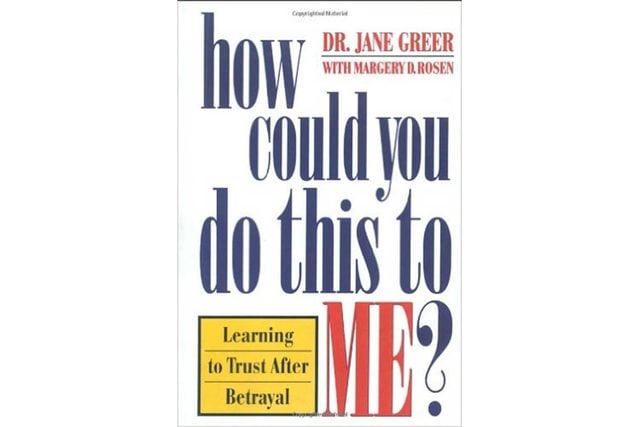
He’s never willing to compromise
Trust is built as people begin see the other person’s side of the story, and give-and-take is necessary for a romantic relationship to work. “This demonstrates a preference placed on his own needs rather than yours,” says Jane Greer, PhD, New York-based relationship expert, and author of How Could You Do This to Me? Learning to Trust After Betrayal. “If that’s the case, how can you trust him to be emotionally supportive when you need him?” For a relationship to be successful, you need to learn how to make the other person happy, too. “Someone who never compromises is selfish and immature,” says April Masini, a New York-based relationship and etiquette expert and author. “Anyone in a healthy relationship knows that ‘you win some, you lose some’ is not just a sing-song phrase; it’s truth. If someone won’t compromise, it means he cares more about having his way than giving in and being generous.” Find out five subtle habits that you trustworthy. It’s also important to trust the brands you use just as much as you trust your partner. Here are the most trusted brands in America.

She’s not available
She promises she’ll attend your work party but flakes at the last minute. Your dog is sick, but she isn’t returning your texts or calls. She always cancels plans at the last minute. “The crux of trust is dependability and follow through,” says Dr. Greer. “It’s based not on what people say, but what they do,” When you trust someone, she shouldn’t be inaccessible when you need her the most or leave you hanging. Here are signs you can totally trust your partner.

He can’t admit he’s wrong
He’ll never say the words, “I’m sorry” or “You were right.” He doesn’t admit something as small as “I messed up and forgot to buy milk at the store.” “We all make mistakes,” says Laura Berman, PhD, a sex and relationship educator and therapist; TV, radio and Internet host; and assistant clinical professor of ob-gyn and psychiatry at the Feinberg School of Medicine at Northwestern University. “But when a person refuses to admit a slip-up—big or small—it’s a guaranteed relationship-killer.” He doesn’t know how to take responsibility for even the smallest things. “If he’s unwilling or unable to admit when he’s wrong, then you’re always going to be wrong,” says Dr. Greer.

She’s a drama queen
She storms off whenever you have a fight. Sure, you can deal with someone who is overly dramatic once in a while. But eventually, you’ll see that this behavior means that she thrives on attention and needs to convince you that she matters. “Drama can be one of the most entertaining parts of life,” says Dr. Berman. “Heck, that’s why we love to watch reality television so much! But, at the end of the day, you also need to be sure that you know how to ‘let it go.'” Remember, oftentimes, for those attracted to drama, it’s always about them, says Antonia Hall, MA, a psychologist, relationship expert and author of The Ultimate Guide to a Multi-Orgasmic Life. “This continual need for attention and conflict is really challenging to be around and will likely leave you feeling mentally and emotionally exhausted,” says Hall. “The behavioral patterns of the drama queen are deeply unhealthy and usually can’t provide the basis of a sustainable, loving relationship.” Decide how these tendencies are impacting your life. “The ability to resolve arguments is a must,” says Dr. Berman. “Sometimes people who love drama will try to prolong arguments because they like the adrenaline rush they get from yelling or from ‘being right.’ It can certainly be a red flag.”

He dishes on his buddies or co-workers
A little gossip is par for the course. But when a mate is overly preoccupied and focused on gossip, who knows what he’s telling others about you behind your back? Someone who is trustworthy is instead talking about intelligent and meaningful topics rather than bashing people and betraying your confidential discussions. He may not even realize he’s gossiping. So, if he’s doing so, point it out to him, says Masini. “Let him know you don’t like it, and why,” says Masini. “If he keeps it up, in spite of you making it clear you find it offensive, you can ask him not to do it around you. However, if you find the gossip so offensive that it’s a deal breaker, and he knows and won’t stop, then the ball is in your court.”

She leaves the room to send a text
She gives off a vibe that she’s doing something secretive and sneaky. Maybe she always gets up to the leave the room for a call or text instead of doing it next to you. Perhaps she’s busy at odd hours of the day, like jetting off to work meetings after hours. Or you notice that she has been withholding information and not opening up about everything. “Stay alert. Instincts are good tools, and you may be onto something,” says Masini. “Just don’t jump the gun and accuse someone of something because you have a gut feeling.” Ask your friends to brainstorm with you, says Walkup. “Would they trust him in the situations you describe?” says Jim Walkup, doctorate of ministry, a licensed marriage counselor who practices in New York City and White Plains, New York.. “A good logical thinker can weigh other possibilities and help you discern if he’s hiding something.”

His stories don’t add up
Timelines don’t make sense. He says he went to the gym but then later mentions hitting up the local coffee shop or he leaves out some information that makes you question things. “Is there a true lack of honesty on his part or is it just a genuine misunderstanding?” says Hall. Approach him to address your concerns. “Ask for specifics and explain that you feel like you need more details and more explanation so you can make sense of what isn’t adding up,” Masini says. “Don’t back someone into a corner because you may be wrong. But if you can’t get an explanation, and you’ve tried your best to do so, then you’re with someone who’s not telling the truth.” Here’s advice for moving on after a breakup.